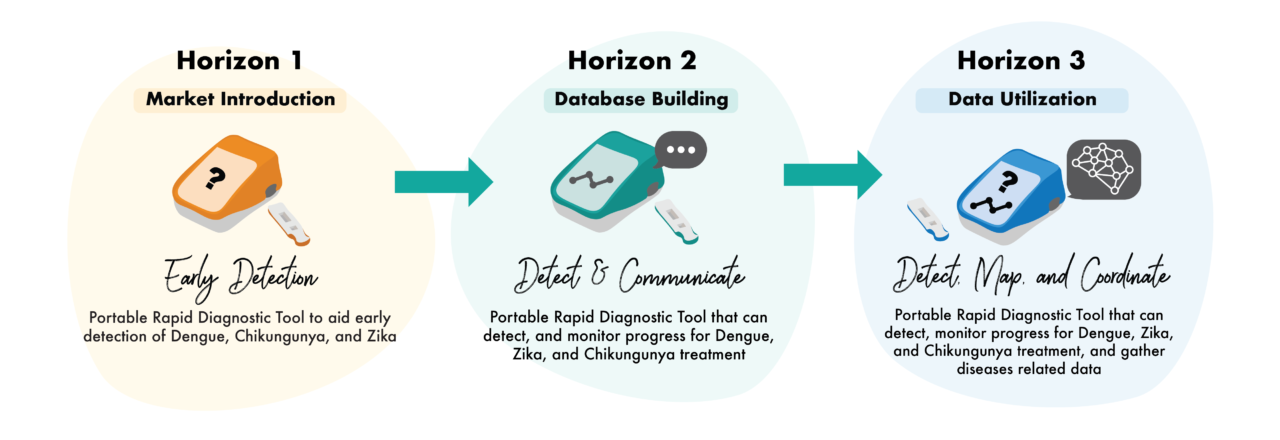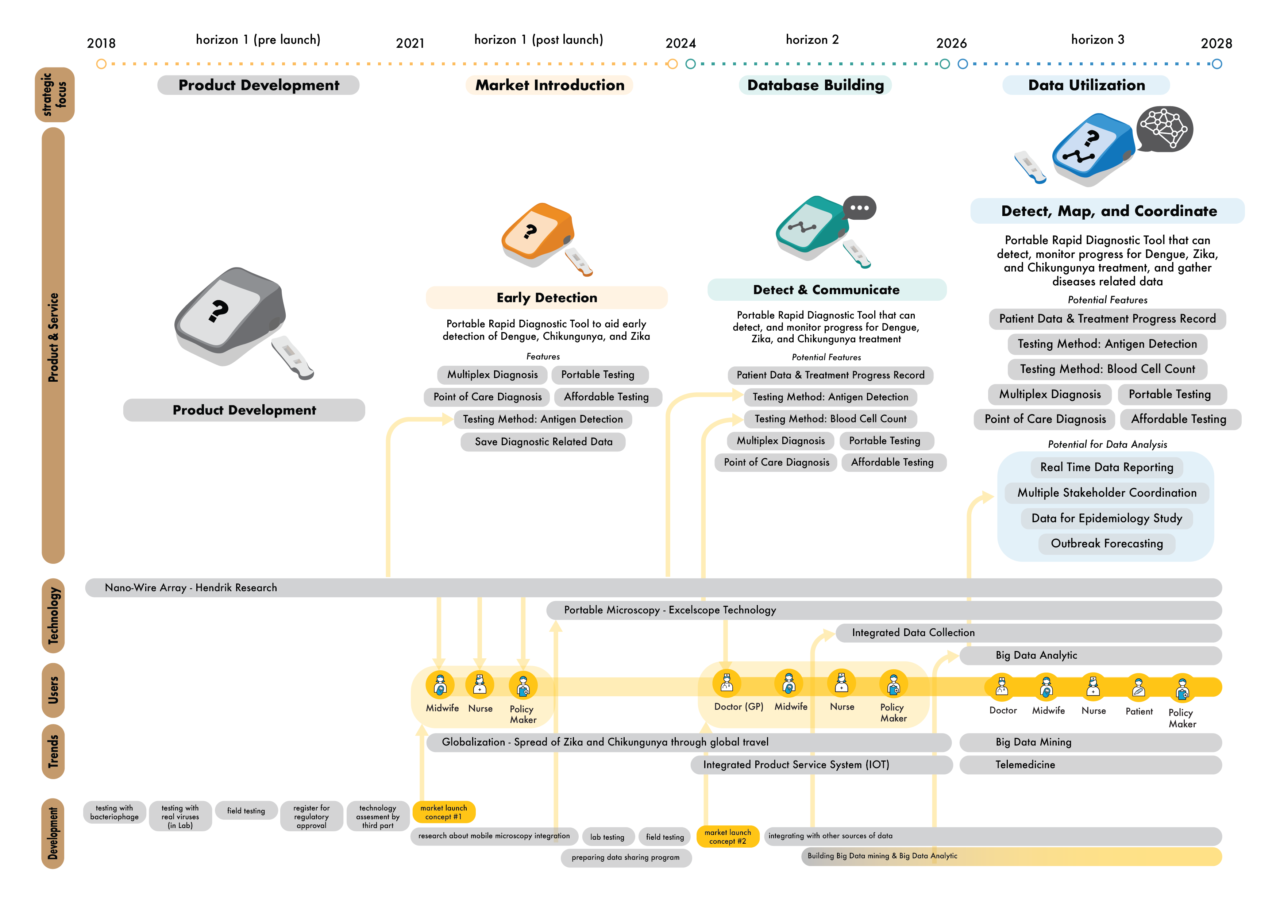Detecting Mosquitoes-Borne Diseases in Indonesia
ongoing
Master thesis by Vinda Zheilla Hardikurnia
The early goal of this project is to investigate a local healthcare context for implementation of a technology under development by TU Delft. The technology is intended to create a smartphone-based Rapid Diagnostic Test that can detect Dengue, Zika, and Chikungunya. The project tried to understand the local healthcare context and find the essential characteristics that can match with the characteristic of technology under development.
Dengue, Zika, and Chikungunya possess non-specific symptoms. Hence, making a clinical diagnosis only through symptoms recognition is challenging. A supporting diagnostic test is needed to verify the diagnosis. However, a reliable and easy to use diagnostic test for Dengue, Zika, and Chikungunya is not always available.
A case study was performed in Indonesia to understand the current situation of local healthcare context. It investigated the local health care system, the diagnostic and treatment process, the available tests, and also the potential users.

In Indonesia, Dengue is rarely diagnosed through a specific Dengue diagnostic test. The main reason of that is due to the affordability of Diagnostic test. Hence, the healthcare professionals prescribe a complete blood count test instead of a Dengue antigen detection test. Another reasons that medical professionals only prescribe the Complete Blood Count test is because it provide a better understanding of patients general condition. However, for nurses and midwives, understanding the result from Blood Count is difficult. It is more helpful for them if they can get a quick definitive result about Dengue early on.
It result on three step of product innovation that started with a simple yet robust product for early detection, an smart diagnostic that can detect and monitor patients progress, and finally a smart product with data analytic function that can provide insights for policymakers and researchers.

From the three concepts, a strategic roadmap with three horizons was developed. Each horizon brings the product innovation process a step closer to the future vision. The first horizon focus on market introduction, the second horizon focus on engaging more people and building a database, the last horizon focus on database utilization.
You can read the full thesis report here.